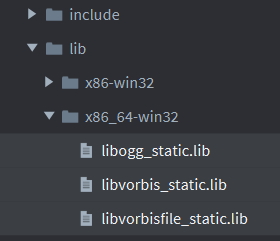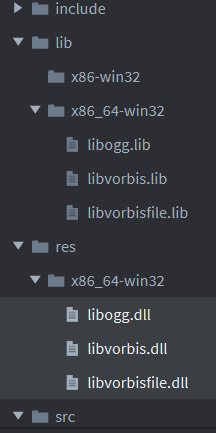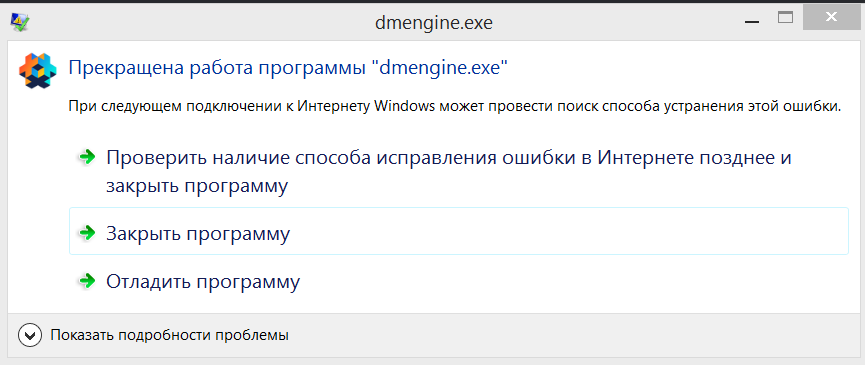I got some problems when trying to write native extensions.
All libraries release for x64.
Version: 1.2.164
- We can get the buffer value using getbytes(). How can I write data to the buffer?
- I was building static libraries in MVSC 2019. Always got that message. I don’t know if I did anything wrong in Visual. But if build a dynamic library, everything works.

- If put dlls in res, then crash.

(Sorry, that is not in English, but the meaning I think is clear. Crash.)
But it’s okay if the dll is in the root.
May need to bundle, but I tried with the dll in the res. Then error with a missing function from the library.
Libraries.
Dynamic in the project. Dll in the root and everything works.
Static: libvorbis.zip (605.9 KB)
Project: Simple_project.zip (9.2 MB)
No crashes and errors if the dynamic link library and dll in root


